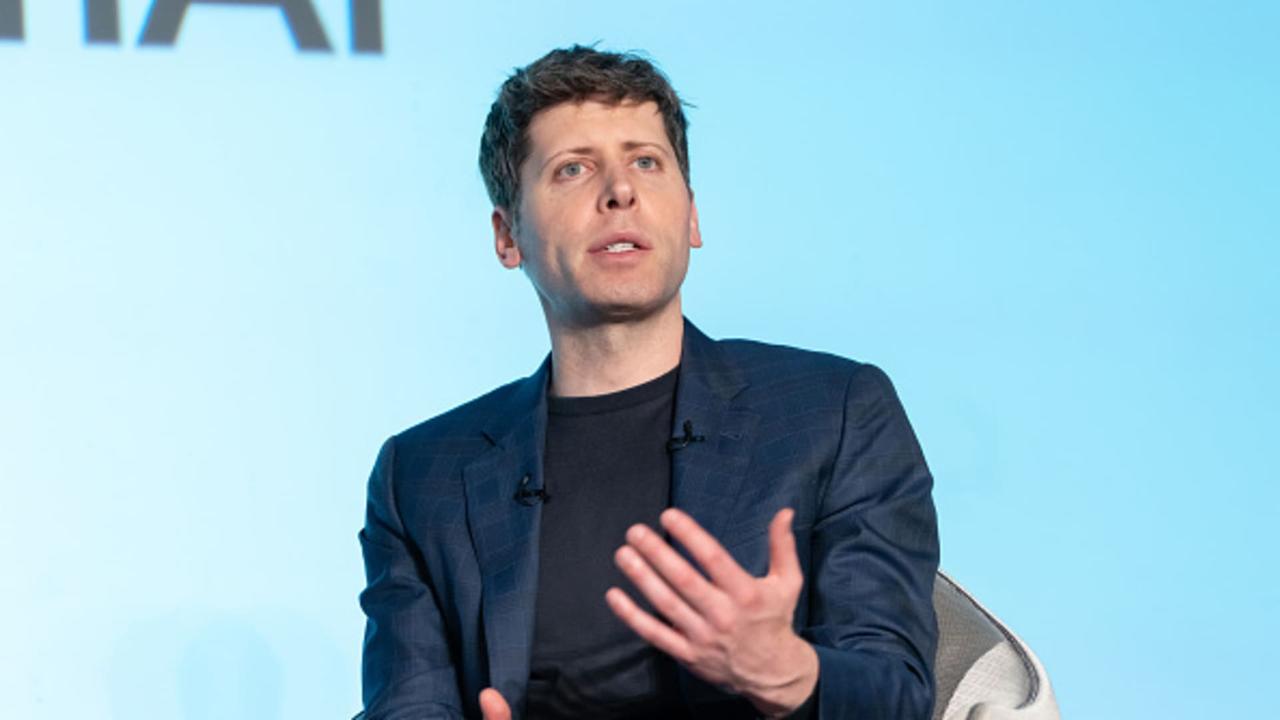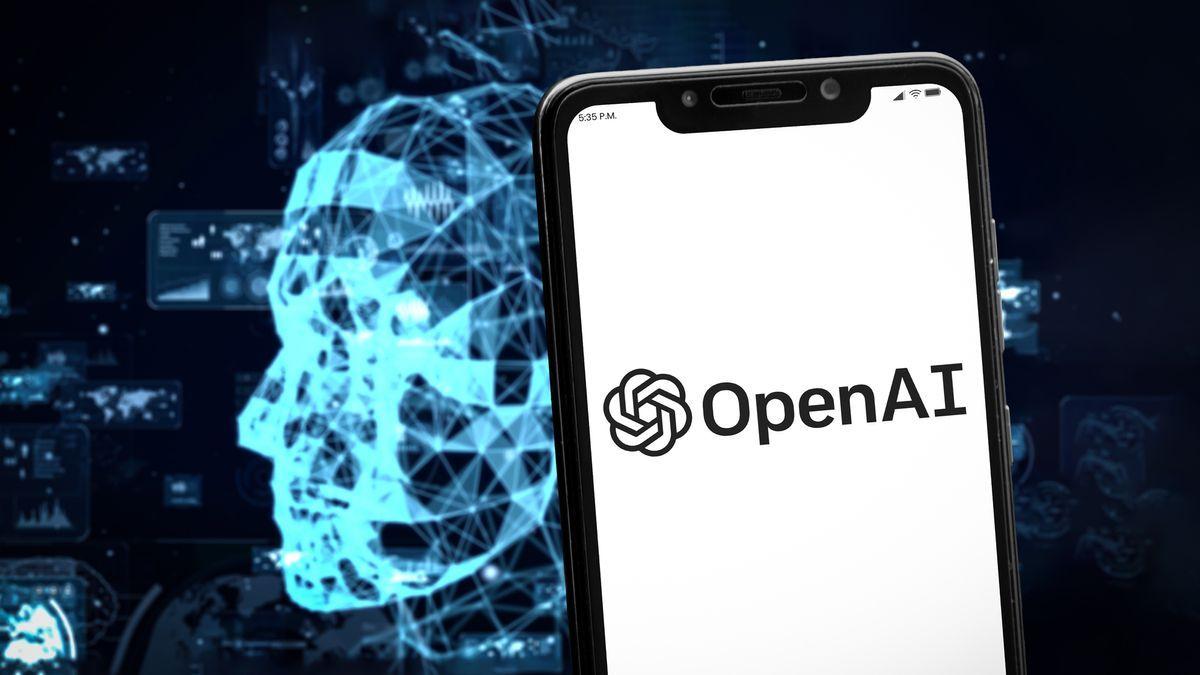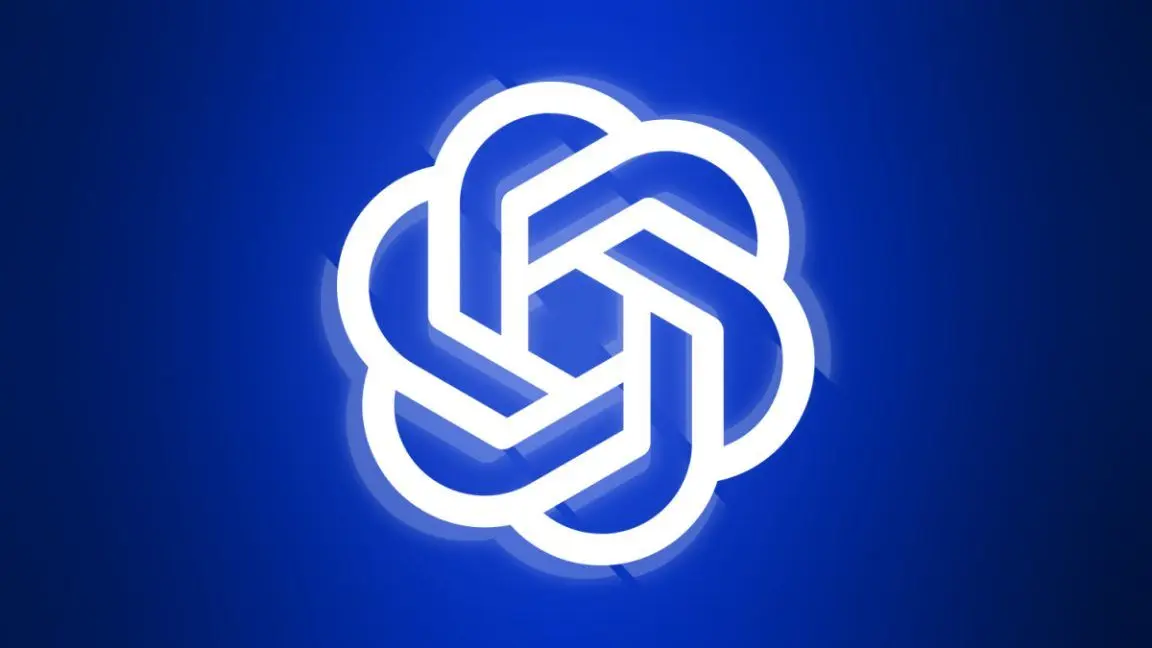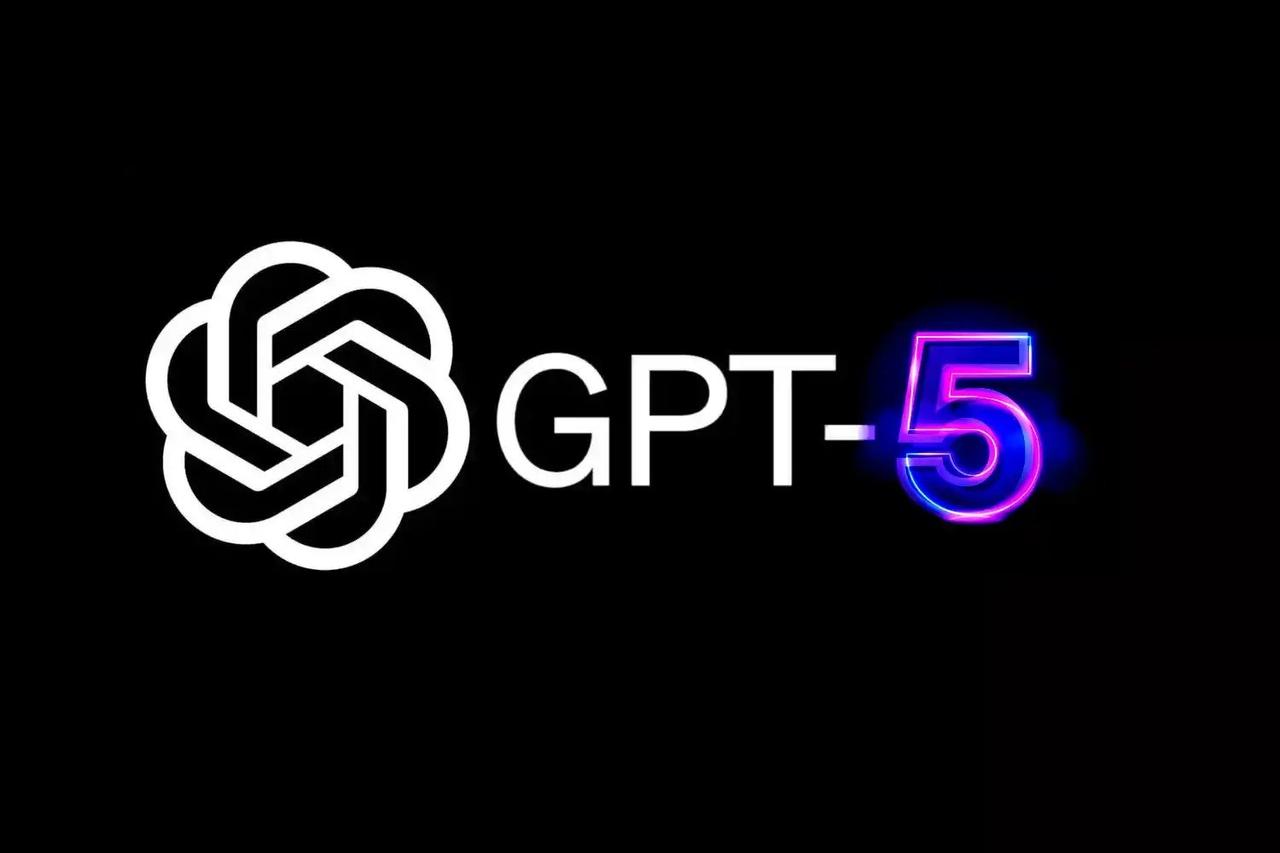OpenAI's GPT-6: Promising Personalization Amid GPT-5 Rollout Challenges
6 Sources
6 Sources
[1]
Forget GPT-5: OpenAI's GPT-6 might launch sooner than you think
At the beginning of August, OpenAI launched its much-anticipated GPT-5 family of models. While the launch was somewhat rocky, the company isn't letting that slow down its momentum: it is already teasing GPT-6, its next generation of models. Also: Here are all the GPT-5 updates OpenAI has rolled out since launch Last week, when chatting with reporters, OpenAI's Sam Altman shed some light on GPT-6, sharing that it is not only already in the works but that the launch will come sooner than the wait between GPT-4 and GPT-5, according to a CNBC report. Naturally, Altman also teased some upcoming features that would make GPT-6 a superior model from its predecessors. For a roundup of everything we know, take a look below. According to the CNBC report, the new model will function more personally by responding to users and adapting to them. It will do so through an enhanced version of its Memory feature, which would remember a person's specific preferences to better cater to those needs. Also: GPT-5 is friendlier now - but not everyone likes it. Here's why "People want memory," Altman said to the reporters. "People want product features that require us to be able to understand them." The version of the Memory feature currently available in ChatGPT was updated in April to reference all of a user's past conversations to better inform future responses (to turn it on, toggle the option accessible in Settings under the Personalization tab). Despite saying the updated memory feature was his favorite launch of the past year, Altman added concerns about privacy, as the temporary memory is not encrypted. He said future encryption could be a possibility, according to the report. Beyond personalization, Altman did share that future versions of ChatGPT will have to comply with a recent executive order from the Trump administration that prevents "woke AI," which the order described as models built with "ideological biases or social agendas." He also shared that the company is working with psychologists to help develop future experiences for users. While no timeline has been shared yet, Altman did say that the gap between GPT-5 and GPT-6 would be smaller than the one that followed GPT-4, which gives us a ballpark idea of when it will launch, if you take a look at the prior timeline. Also: AI is creeping into the Linux kernel - and official policy is needed ASAP When ChatGPT became popular in November 2022, it was running on GPT-3.5. Shortly after, OpenAI released GPT-4 in March 2023. OpenAI introduced GPT-4o -- a significant update that improved its capabilities broadly and notably introduced multimodality -- a year later, in March 2024, but GPT-5 was not released until August 2025. This makes the time between GPT-4 and GPT-5 over two years, so at least you know it will be sooner than then. Even that very loose timeline is worth taking with a grain of salt, as product launch timelines constantly get pushed back. For example, in February, Altman initially shared a roadmap on X for new models, and in the comments, said it would be a matter of "weeks/months" before GPT-5 was launched. However, in April, Altman said there had been a change of plans, pivoting to a release of o3 and o4-mini and pushing GPT-5 back a couple of months, with the model ultimately launching in August. Ultimately, the fast pace at which OpenAI is moving aligns well with the company's ultimate goal of achieving AGI. Although most estimates still place AGI far away, OpenAI's ambitious goal does encourage them to constantly innovate, research, and make incremental upgrades. Releasing so many models has fed the company's upward trajectory of momentum. Also: Claude wins high praise from a Supreme Court justice - is AI's legal losing streak over? The Information recently reported that OpenAI reached $12 billion in revenue, double the already staggeringly high $5.5 billion reported in December 2024 (though the company is still not profitable). The report also noted that OpenAI has around 700 million active users for its ChatGPT products, including enterprise and business customers. OpenAI has been riding this wave for some time now, with a previous report from The Information showing that, in the first three months of 2025, the company saw a 30% increase in revenue. This growth is uncharacteristic of the larger industry, because people are overwhelmed by the sheer number of offerings on the market.
[2]
Sam Altman on GPT-6: 'People want memory'
That's the message OpenAI CEO Sam Altman delivered to reporters in San Francisco last week, offering a rare glimpse into the company's evolving product roadmap, as well as its missteps. Altman didn't give a release date for his company's next artificial intelligence model, but he made clear that GPT-6 will be different and that it will arrive faster than the gap between GPT-4 and GPT-5. It won't just respond to users but will adapt to them, and allow people to create chatbots that mirror personal tastes. He said he sees memory as the key for making ChatGPT truly personal. It needs to remember who you are -- your preferences, routines, and quirks -- and adapt accordingly. "People want memory," Altman said. "People want product features that require us to be able to understand them." He said OpenAI has been working closely with psychologists to help shape the product, measuring how people feel while tracking well-being over time. The company hasn't made that data public, but Altman indicated it might. He also said that future versions of ChatGPT would comply with a recent executive order from the Trump administration that requires AI systems used by the federal government to be ideologically neutral and customizable "I think our product should have a fairly center-of-the-road, middle stance, and then you should be able to push it pretty far," Atlman said. "If you're like, 'I want you to be super woke' -- it should be super woke." He added that if a user wanted the model to be conservative, it should also reflect that as well.
[3]
GPT‑6 could change how we use AI forever -- here's what we know
Less than two weeks after ChatGPT-5 launched with a rocky rollout, OpenAI CEO Sam Altman is already offering a sneak peek into what's next for the company. This time, it's not about more power, but persistence. CNBC recently reported that the next model (GPT‑6) will feature greater memory capabilities designed to make interactions feel more personalized, consistent and human-like. "People want models that remember things over time," he said during a recent event, underscoring a shift in how AI will become more of a trusted companion that won't quickly forget user conversations. In other words, this next generation is being built for long-term connection. GPT‑5 introduced better reasoning and token flexibility, but if you've used it for any length of time, you've proabably noticed that every new interaction feels disconnected. GPT‑6's memory feature aims to change that by: When AI remembers past conversations, preferred formats, tone of voice or even specific long-term goals, it moves from being a clever chatbot to something more meaningful. This shift fosters trust and deepens usability. You'll spend less time repeating yourself and more time building on what's already been said. It can pick up where you left off, adapt to your evolving needs, and even anticipate the kinds of answers or insights you're looking for. Crucially, memory unlocks adaptability, which OpenAI CEO Sam Altman says is more important than just raw processing power. The smartest assistant in the world isn't helpful if it can't remember what you asked yesterday or how you prefer your information delivered. In the race toward more human-like interaction, memory is the foundation of AI assistance. Altman hasn't been shy about the risks. Long-term memory could offer convenience, but it also raises red flags about privacy and data misuse. Users want an AI that adapts to them, but it can add extra layers of both ethical and safety considerations. Any practical rollout of memory features will need clear user controls, transparent storage policies and security protection mechanisms. Without this care, the promise of connection could tilt into discomfort or surveillance. While we don't know when GPT-6 will launch, the promise of greater memory could change the game forever. Today, AI forgets, keeping you in control. But GPT‑6's potential to remember could transform our relationship with technology entirely, turning it into a truly personal assistant. If done ethically, this could be one of AI's most human steps yet.
[4]
After Disastrous GPT-5, Sam Altman Pivots to Hyping Up GPT-6
OpenAI's launch of its long-awaited GPT-5 AI model turned out to be a bit of a dud. Those expecting a revolutionary change, something CEO Sam Altman promised outright months ago, were left sorely disappointed. In many ways, GPT-5 felt more like an iterative improvement, while a colder and less personable tone took aback those looking to foster an emotional relationship with the bot. Power users on social media voiced their discontent in droves, accusing OpenAI of cutting corners by hamstringing GPT-5's output, even calling it a "disaster." The company responded by bowing to widespread demands for a "warmer"-sounding model. During a chat with reporters last week, Altman admitted that the company "totally screwed up some things on the rollout." But even while the stumbling rollout was still unfolding, one of the industry's most notorious hypemen was already promising huge things for GPT-5's successor. As CNBC reports, OpenAI is looking to turn a new leaf, with Altman already discussing how GPT-6 -- which doesn't have any form of release date just yet -- will usher in a revolution once again. According to the executive, who has long garnered a reputation for making grandiose and exaggerated statements about his company's tech, the next iteration will have a much better ability to remember its users' preferences and habits. "People want memory," he said during last week's chat with reporters. "People want product features that require us to be able to understand them." Altman also said that OpenAI's chatbot should be capable of reflecting back the worldview that its users want. "I think our product should have a fairly center-of-the-road, middle stance, and then you should be able to push it pretty far," he said. "If you're like, 'I want you to be super woke' -- it should be super woke." That's despite him previously acknowledging a worrying trend of sycophantic AIs fueling delusional spirals and full-blown breaks from reality days earlier. "People have used technology, including AI, in self-destructive ways; if a user is in a mentally fragile state and prone to delusion, we do not want the AI to reinforce that," the CEO tweeted. "Most users can keep a clear line between reality and fiction or role-play, but a small percentage cannot." During last week's chat, the CEO also said that AI will give "better" medical and legal advice than human doctors and lawyers -- though whether it's actually headed that way remains dubious at best. Given how last week's GPT-5 launch went, it's not hard to see Altman's comments as an attempt to redirect the narrative back toward the future. Critics have long warned that we may rapidly be approaching a plateau in which AI stops getting all that much better. GPT-5 appears to have confirmed their suspicions, at least to some degree, with Altman being forced to jump in and hype up the next iteration days after his company's latest AI launch. "I don't hear a lot of companies using AI saying that 2025 models are a lot more useful to them than 2024 models, even though the 2025 models perform better on benchmarks," longtime AI critic Gary Marcus told the New Yorker. That kind of concern seemingly hasn't flown over the head of Altman, either. "The models have already saturated the chat use case," he told reporters last week. Instead, Altman is promising a future where people simply think their ChatGPT prompts in their head, calling "neural interfaces" a "cool idea." Indeed, last week, the Financial Times reported that OpenAI and Altman are starting a brain-computer interface company to rival their arch nemesis Elon Musk's Neuralink. As far as the privacy implications are concerned, OpenAI doesn't appear to be too worried, with Altman telling reporters that data encryption "very well could be" added to future AI models -- though he stopped short of revealing any concrete plans to actually do it.
[5]
OpenAI CEO Sam Altman Concedes GPT-5 Was a Misfire, Bets on GPT-6 - Decrypt
Altman said that GPT-6 must feel personal without exploiting users, but GPU shortages limit OpenAI's pace. After public backlash over GPT-5's rollout, OpenAI CEO Sam Altman admitted the company "screwed up," and said the fallout is already shaping the next version of ChatGPT. At a private dinner with reporters in San Francisco, first reported by The Verge, Altman admitted that GPT-5's launch upset many of ChatGPT's hundreds of millions of users. "I think we totally screwed up some things on the rollout," he said. The misstep centered on OpenAI's decision to replace ChatGPT's default "4o" model, which was widely praised for its warmth and conversational style, with GPT-5. User backlash on Reddit and X was swift, with some users threatening to cancel their ChatGPT subscriptions. Following the backlash, OpenAI pushed an update that restored 4o as an option for paying subscribers. "I think we've learned a lesson about what it means to upgrade a product for hundreds of millions of people in one day," Altman said, calling the reversal a wake-up call. One lesson from GPT-5's launch is that people form emotional ties with AI, he noted. Some users described the new model as colder, more mechanical, and less supportive than its predecessor. After GPT-4o was deprecated, some Reddit users even said the upgrade "killed" their AI companions. Despite the outcry on subreddits like r/MyBoyfriendisAI, r/AISoulmates, and r/AIRelationships, Altman estimated that fewer than 1% of ChatGPT users have "unhealthy relationships" with the bot but said the company is paying close attention. "There are the people who actually felt like they had a relationship with ChatGPT," Altman said. "Then there are hundreds of millions of others who didn't but still got used to how it responded, validated them, and offered support." The challenge for GPT-6, Altman suggested, will be making the system feel personal without exploiting vulnerable users. While GPT-5 is still rolling out, Altman said that OpenAI is already looking ahead, noting the timeline between GPT-5 and 6 would be much shorter than GPT-4 and 5. However, Altman said GPU capacity may impact that calculation. "We have better models, and we just can't offer them because we don't have the capacity," Altman admitted, citing a shortage of GPUs, the powerful chips needed to run large AI systems. To solve that, Altman said OpenAI would need to spend "trillions of dollars on data center construction in the not very distant future." Altman also used the dinner to sketch a broader future for OpenAI, including backing a brain-computer interface startup to rival Elon Musk's Neuralink. He also floated the idea of joining the escalating bidding war for Google Chrome. OpenAI is also collaborating with Jony Ive, Apple's former design chief, on a still-secret AI device. Despite GPT-5's bumpy start, ChatGPT is bigger than ever. The app now reaches more than 700 million weekly users, quadrupling its audience from a year ago. However, Altman warned of an AI bubble forming in the industry. "Are we in a phase where investors as a whole are overexcited about AI? My opinion is yes," he said. "Is AI the most important thing to happen in a very long time? My opinion is also yes."
[6]
Sam Altman already teased GPT-6
OpenAI CEO Sam Altman has provided insights into the next iteration of the company's AI model, GPT-6, shortly after the launch of GPT-5. The upcoming model will prioritize enhanced memory capabilities for more personalized and consistent user interactions. According to a recent report by CNBC, GPT-6 will focus on creating a more human-like interaction experience. This represents a shift from simply increasing the processing power of the AI to improving its ability to remember and learn from past interactions, with the overarching goal of delivering a more tailored and relevant user experience. While GPT-5 introduced improvements in reasoning and token flexibility, users have noted that each new interaction with the model feels isolated from previous ones. The memory feature in GPT-6 is designed to address this issue. Specific improvements include: The development of memory capabilities in AI represents a significant step towards creating more meaningful and useful interactions. This functionality allows AI to transition from being a simple chatbot to becoming a more reliable and valuable assistant. When AI can recall past conversations, preferred communication styles, and long-term goals, it can foster greater trust and enhance usability. Users will spend less time repeating information and more time building upon previous interactions. The AI can pick up where it left off, adapt to changing needs, and anticipate the types of responses or insights a user is seeking. OpenAI CEO Sam Altman emphasized that the adaptability enabled by memory is more crucial than raw processing power. He stated that even the most intelligent AI assistant is ineffective if it cannot recall previous requests or preferred methods of information delivery. Adaptability and personalized experiences are therefore core to the design and development of GPT-6. Despite the potential benefits, Altman has acknowledged the inherent risks associated with long-term memory in AI. The capability to remember past interactions raises concerns about privacy and the potential for data misuse. While users desire an AI that can adapt to their needs, this adaptability introduces ethical and safety considerations that must be addressed. The practical implementation of memory features will require robust user controls, transparent data storage policies, and strong security protection mechanisms. These measures are essential to prevent the potential for discomfort or surveillance and to ensure that user data is handled responsibly. Without these precautions, the promise of a more connected and personalized experience could be undermined by privacy and security risks. The launch date for GPT-6 remains unknown, but the emphasis on enhanced memory capabilities signifies a potentially transformative shift in AI technology. Currently, AI systems generally forget past interactions, giving users a sense of control. The ability of GPT-6 to remember could fundamentally alter this relationship, creating a truly personal and adaptive assistant. If developed and implemented ethically, this could mark a significant advancement in AI's ability to understand and interact with humans in a more meaningful way.
Share
Share
Copy Link
OpenAI CEO Sam Altman discusses plans for GPT-6, emphasizing enhanced memory and personalization features, while addressing challenges faced during the GPT-5 rollout.
OpenAI's Vision for GPT-6: Enhanced Memory and Personalization
In a recent meeting with reporters, OpenAI CEO Sam Altman provided insights into the company's plans for GPT-6, the next iteration of their large language model. This announcement comes on the heels of the GPT-5 launch, which faced some challenges and user criticism
1
.
Source: CNBC
Key Features of GPT-6
Altman emphasized that GPT-6 will focus on enhancing the AI's ability to remember and adapt to individual users. "People want memory," Altman stated, highlighting the demand for AI systems that can understand and cater to specific user preferences
2
. This feature aims to create a more personalized and consistent user experience, potentially transforming AI from a clever chatbot to a more meaningful digital companion3
.Addressing GPT-5 Rollout Challenges
Altman acknowledged issues with the GPT-5 rollout, stating, "I think we totally screwed up some things on the rollout"
5
. The launch faced criticism from users who found the new model less personable and engaging compared to its predecessor. This feedback has influenced OpenAI's approach to developing GPT-6, with a focus on maintaining the warmth and conversational style that users appreciated in earlier versions4
.Balancing Personalization and Ethics
While emphasizing personalization, Altman also addressed the need for ethical considerations. He mentioned that future versions of ChatGPT would comply with recent executive orders requiring AI systems to be ideologically neutral and customizable
1
. The challenge lies in creating an AI that adapts to users without exploiting vulnerabilities or reinforcing harmful biases5
.Timeline and Technical Challenges
Although no specific release date was provided for GPT-6, Altman indicated that the gap between GPT-5 and GPT-6 would be shorter than the two-year interval between GPT-4 and GPT-5
1
. However, he also highlighted potential constraints due to GPU shortages, which could impact the development and deployment of more advanced models5
.Related Stories
Broader Implications and Future Directions

Source: Tom's Guide
OpenAI's focus on memory and personalization in GPT-6 signals a shift in AI development towards creating more human-like interactions. This approach could potentially transform how we use and relate to AI technologies
3
. Additionally, Altman hinted at other ambitious projects, including a brain-computer interface startup and collaboration with former Apple design chief Jony Ive on an AI device5
.Industry Impact and User Base Growth
Despite the challenges with GPT-5, ChatGPT's user base has grown significantly, reaching over 700 million weekly users
5
. This growth underscores the increasing importance of AI in various sectors, although Altman cautioned about potential overexcitement in AI investments5
.
Source: ZDNet
As OpenAI continues to push the boundaries of AI technology, the development of GPT-6 represents a critical step in addressing user needs and expectations. The focus on memory and personalization could mark a significant evolution in how AI interacts with and adapts to individual users, potentially reshaping our relationship with AI assistants.
References
Summarized by
Navi
Related Stories
Recent Highlights
1
Pentagon threatens to cut Anthropic's $200M contract over AI safety restrictions in military ops
Policy and Regulation

2
ByteDance's Seedance 2.0 AI video generator triggers copyright infringement battle with Hollywood
Policy and Regulation

3
OpenAI closes in on $100 billion funding round with $850 billion valuation as spending plans shift
Business and Economy








